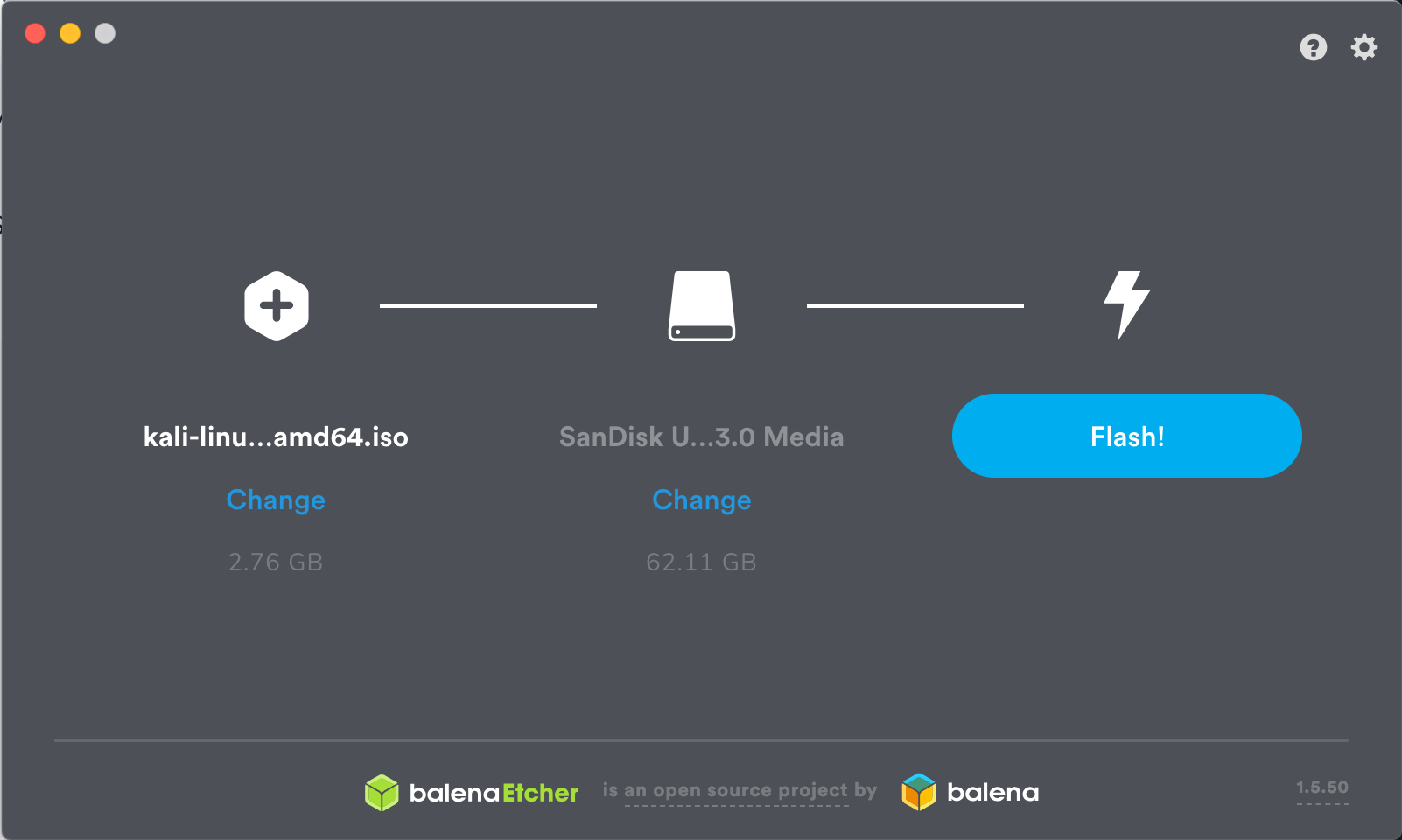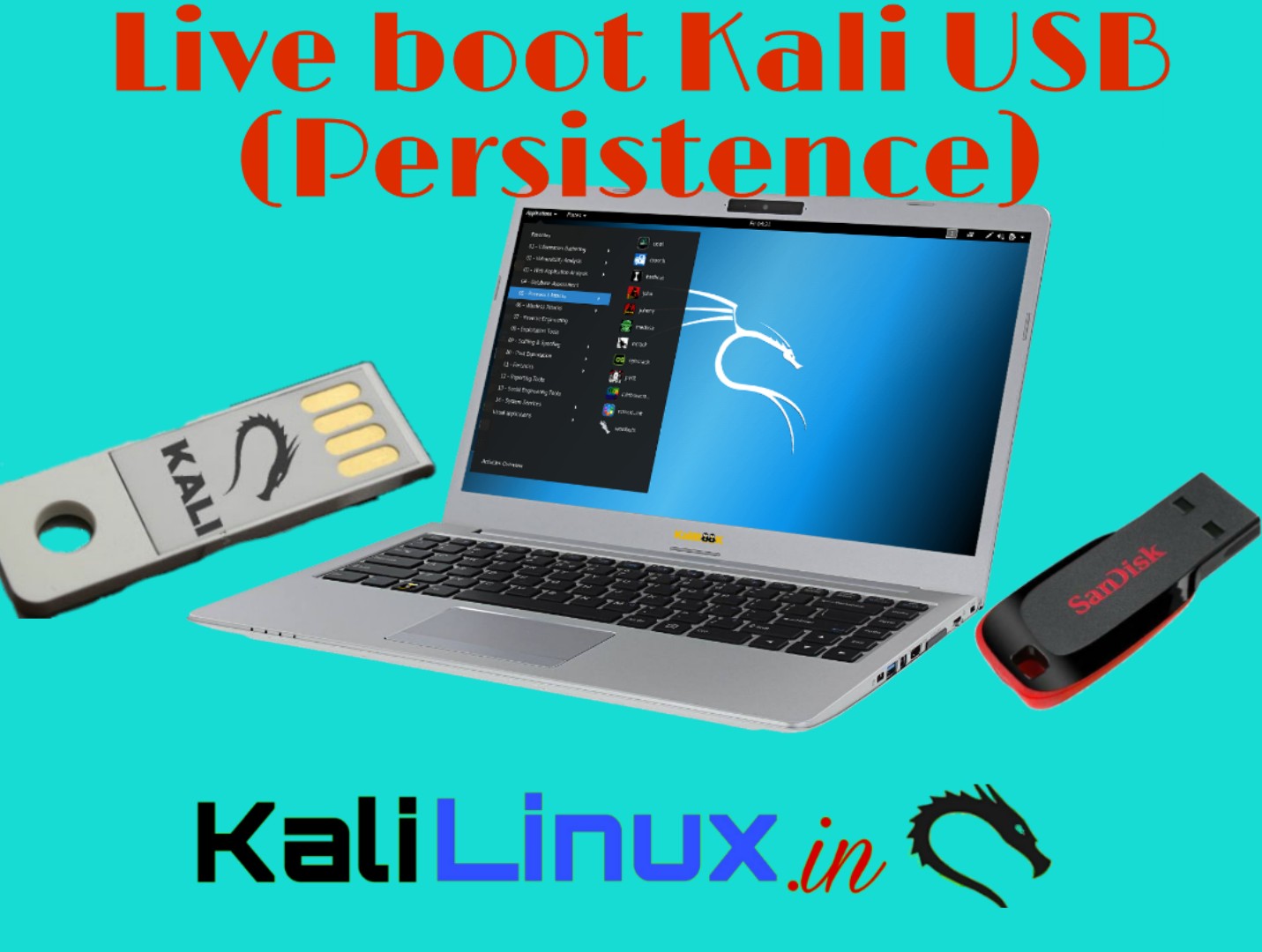

Increasing this can lead to un-bootable drives. The recommended blocksize value, “bs=512k”, is conservative and reliable. Navigate to the location of the image file and carefully image the Kali ISO file on to the USB device by using the command below. Now, the output will show an additional device which wasn’t there previously, in this example “/dev/sdb”, a 16GB USB drive. Plug your USB drive into an port on your system and run the same command.

Without the USB drive inserted into a port, execute the command sudo fdisk -l Note that you’ll need to be running as root, or to execute the dd command with sudo.įirst, you’ll need to identify the device path to use to write the image to your USB drive.

Creating a live USB within Linux or Mac is just as easy as using Etcher and can be done with a command line tool called “dd”.


 0 kommentar(er)
0 kommentar(er)
